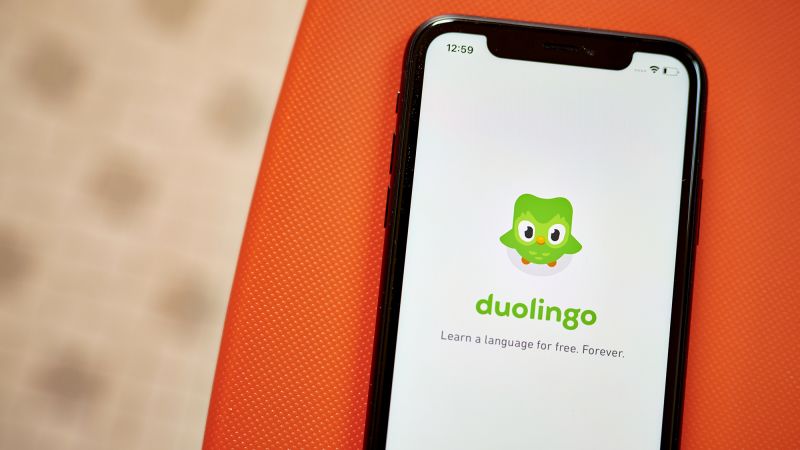In a rather whimsical turn of events, the beloved green owl, who served as the logo of the popular language-learning app Duolingo, has officially been declared “dead”. This announcement came from the US-based company, which cemented its status as a household name during the Covid-19 pandemic when many people sought new hobbies and skills to occupy their newfound free time. The company’s quirky mascot, affectionately known as Duo—short for Duolingo—had become synonymous with the application itself, making the news of its unforeseen demise both shocking and endearing to its users.
On a recent Tuesday, Duolingo took to the social media platform X (formerly known as Twitter) to break the news. In a post tinged with humor and a hint of irony, the company expressed its sorrow by stating, “It is with heavy hearts that we inform you that Duo, formally known as the Duolingo Owl, is dead.” Accompanying this somber revelation was a somewhat playful note that authorities were investigating the cause of death, while humorously suggesting that Duo might have expired from waiting too long for users to complete their language lessons—a cheeky jab at the procrastination many users experience.
The announcement further drew parallels to the fate of Twitter’s blue bird, which was discarded after Elon Musk’s acquisition led to a rebranding of the platform as X. It seems that Duo’s fate followed a similar trajectory, highlighting a trend of corporate identity transformations in today’s social media landscape. Founded in 2011 and based in Pittsburgh, Duolingo offers upwards of 100 courses covering more than 40 languages, leveraging gamification to keep users engaged through bite-sized learning sessions. The popularity it gained during the pandemic largely propelled it into mainstream culture.
In an even quirkier twist, Duolingo’s post mentioned that the owl had its share of detractors, asking users to refrain from publicly sharing their grievances about Duo while humorously adding a request for credit card information to sign individuals up for its premium subscription service, Duolingo Max, in memory of the owl. Perhaps the most unexpected note in the announcement was a plea for respecting “Dua Lipa’s privacy at this time,” linking the fictional demise of Duo to the pop star with whom the owl had an amusing fictional infatuation.
This fictional love story between Duo and Dua Lipa had actually been hinted at in earlier Duolingo marketing, which depicted the singer-songwriter as the owl’s “unrequited love interest.” The company cunningly integrated this theme into teaching modules that playfully referenced her song lyrics for English vocabulary lessons.
The announcement quickly went viral, garnering a staggering view count of over 47 million by the next day. Social media users flooded the comments with humorous reflections; one user lamented, “Bro spent his last days begging me to learn French… and I ignored him… I will never recover from this.” Another cheekily questioned whether foul play was suspected in the owl’s untimely demise.
Duolingo’s subsequent social media posts maintained the tongue-in-cheek tone, suggesting that instead of sending flowers, users should undertake a Duolingo lesson to honor Duo’s memory. The company also updated its profile image on X, featuring a depiction of the owl with cartoon-style crosses over its eyes, suggesting it had indeed departed, while simultaneously showcasing a cowboy hat as its new logo.
Interestingly, the app’s icon has adopted the imagery of the deceased owl, though within the app, the mascot continues to appear alive and animated. In light of the unexpected campaign, Duolingo promised users that it would share more details about the “shocking (and possibly absurd) truth behind his untimely demise,” hinting at an ongoing narrative that encapsulates both humor and an engaging storytelling approach within its brand. This peculiar mix of dark humor and playful marketing illustrates the innovative methods companies are adopting to remain memorable and relatable in a competitive digital landscape.



